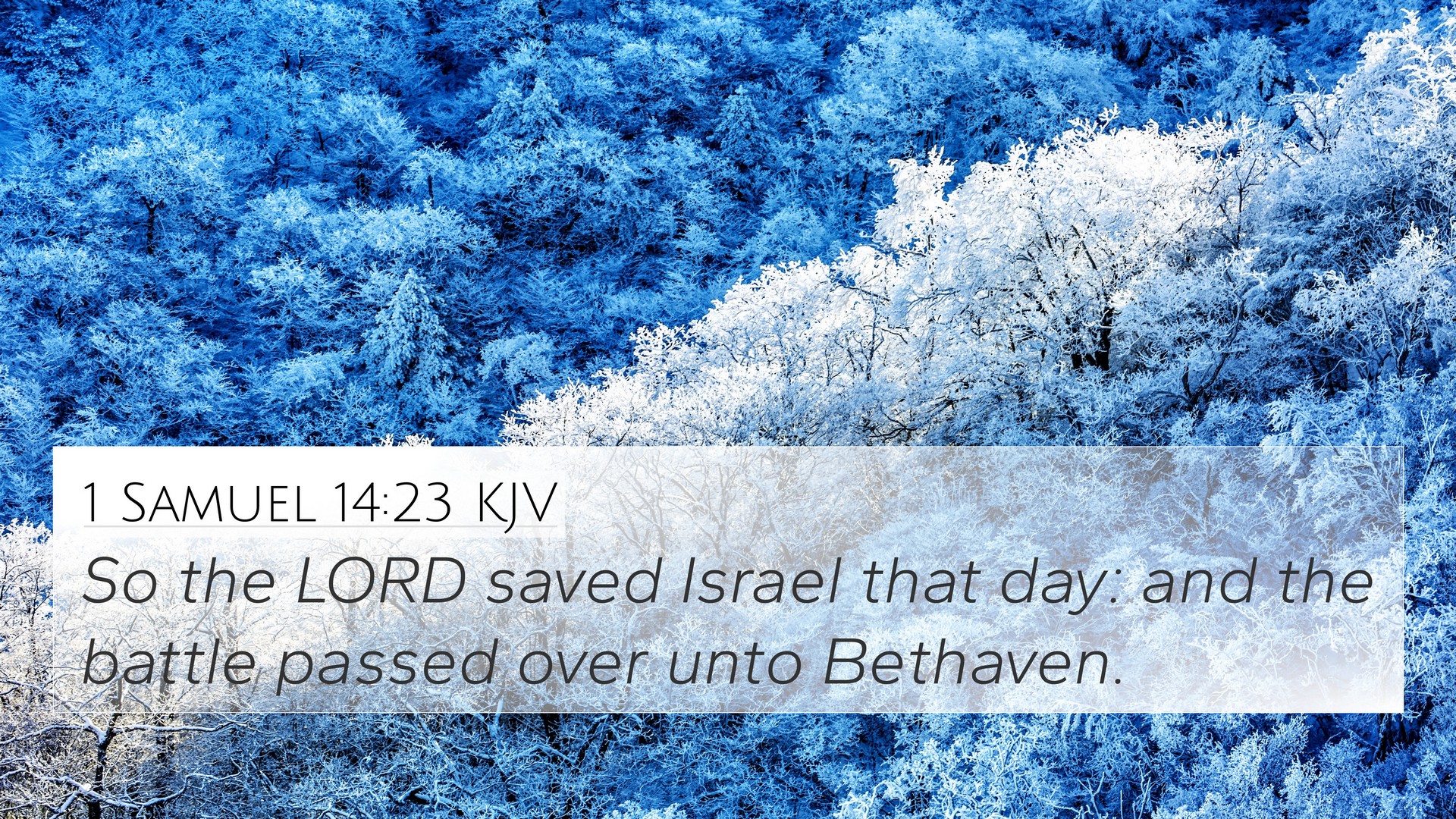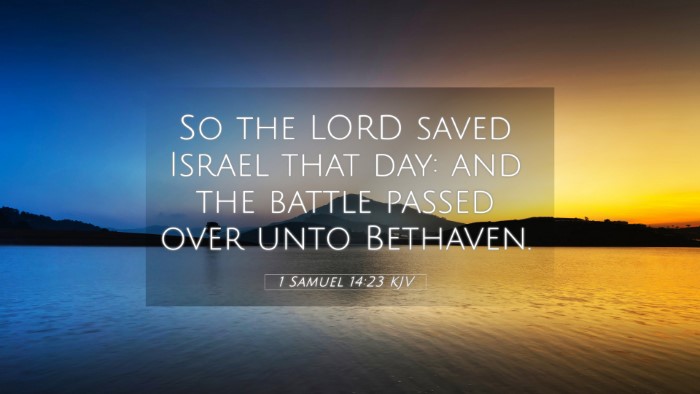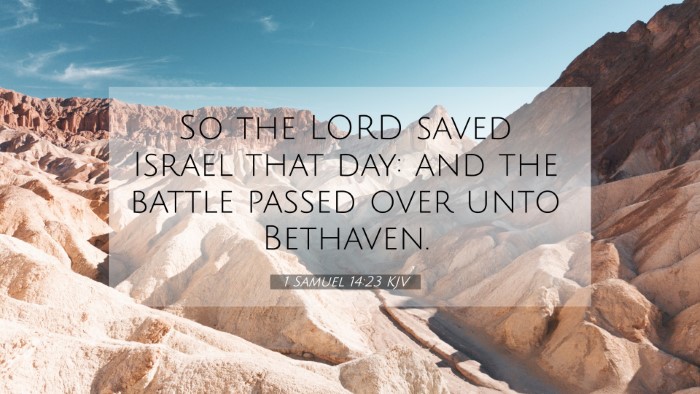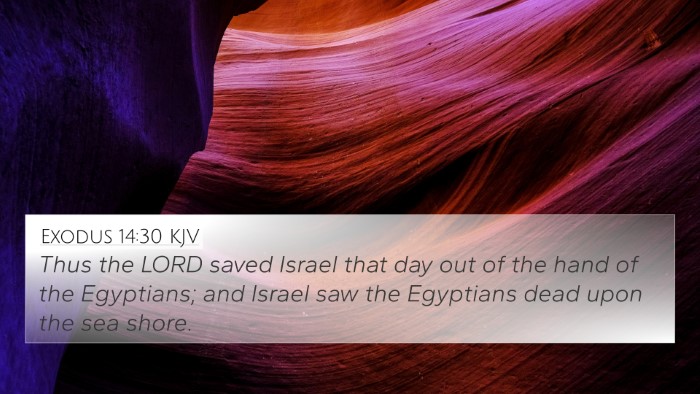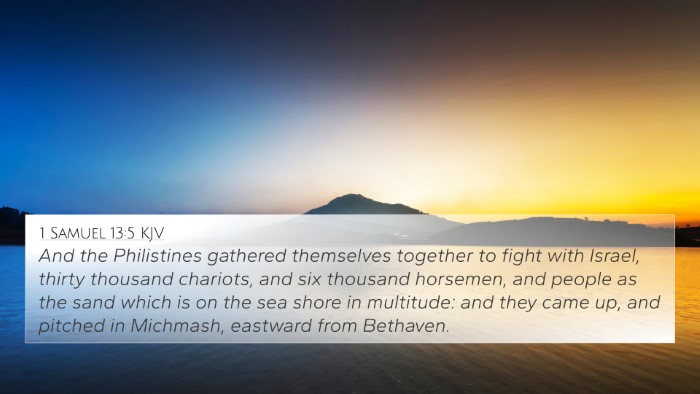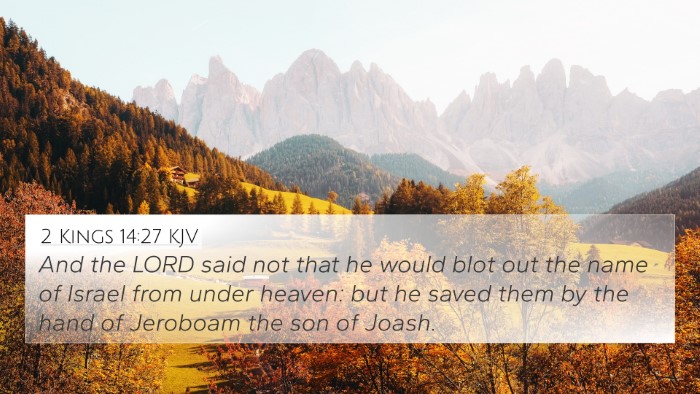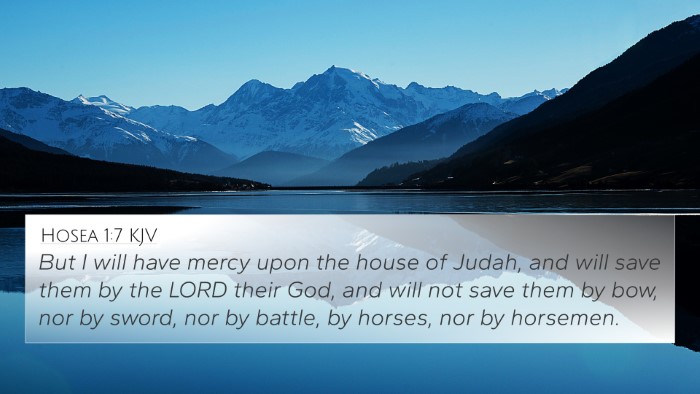Understanding 1 Samuel 14:23
1 Samuel 14:23 states, "So the LORD saved Israel that day. And the battle passed over to Beth Aven." This verse emphasizes the theme of divine intervention and salvation in Israel's conflicts, showcasing God's sovereign role in guiding His people.
Meaning and Context
This moment in the narrative occurs during a critical battle against the Philistines. Jonathan’s brave actions set the stage for the intervention of God, demonstrating that victory belongs to the Lord. The verse serves to highlight how God orchestrates events for the benefit of His chosen people, and emphasizes the importance of faith and reliance on divine power.
Insights from Public Domain Commentaries
- Matthew Henry: Henry notes that this event showcases God’s ability to save despite human limitations. He highlights that Israel's salvation is attributed to God alone, furthering the understanding that reliance on God leads to success.
- Albert Barnes: Barnes elaborates on the significance of this deliverance, stating it reinforces the recurring biblical theme that God fights for Israel. He also points out that the location, Beth Aven, signifies a spiritual turning point for the Israelites.
- Adam Clarke: Clarke emphasizes the miraculous nature of the event, explaining that God’s involvement in the battle illustrates His sovereignty. Clarke also points to the necessity of human action in conjunction with divine help, as seen through Jonathan's courageous approach.
Thematic Connections
This verse connects with various themes throughout the Bible, particularly the idea of God as a savior and protector of His people. Below are notable cross-references that connect with the narrative of 1 Samuel 14:23:
- Exodus 14:13-14: God's promise to fight for Israel against their enemies.
- Deuteronomy 20:4: Assurance of God's presence in battle.
- 2 Chronicles 20:15: The battle is the Lord's, mirroring the themes of divine deliverance.
- Psalm 18:2: Describing God as a fortress and deliverer in times of trouble.
- Isaiah 54:17: A promise that no weapon formed against God's people will prevail.
- Romans 8:31: If God is for us, who can be against us?
- Hebrews 11:32-34: Names heroes of faith who, through God, conquered kingdoms and wrought righteousness.
Inter-Biblical Dialogue
The connections between the Old and New Testaments reveal an overarching narrative where God’s faithfulness continues to resonate. For instance, the idea of divine intervention and salvation is echoed in the New Testament through Jesus’ sacrifice and triumph over sin. Each of these connections invites deeper exploration through tools for Bible cross-referencing.
Tools for Bible Cross-Referencing
Studying scripture through the lens of cross-references enriches understanding of Biblical themes and events. Consider the following methods:
- Using a Bible concordance to locate terms and their occurrences throughout scripture.
- Engaging with a Bible cross-reference guide to facilitate deeper thematic studies.
- Employing a cross-reference Bible study framework to compare related verses, illustrating the continuity of God’s promises.
Practical Application
For those seeking to apply the lessons from 1 Samuel 14:23, reflect on God’s role in your battles. Consider how faith in God can lead to victory in personal challenges.
Conclusion
1 Samuel 14:23 encapsulates a significant theological truth about God's sovereignty and faithfulness. By exploring the connections between this verse and others, believers can gain a fuller understanding of Biblical teachings regarding God's deliverance. This examination not only enriches personal study but also invites communal exploration in prayer and reflection.
